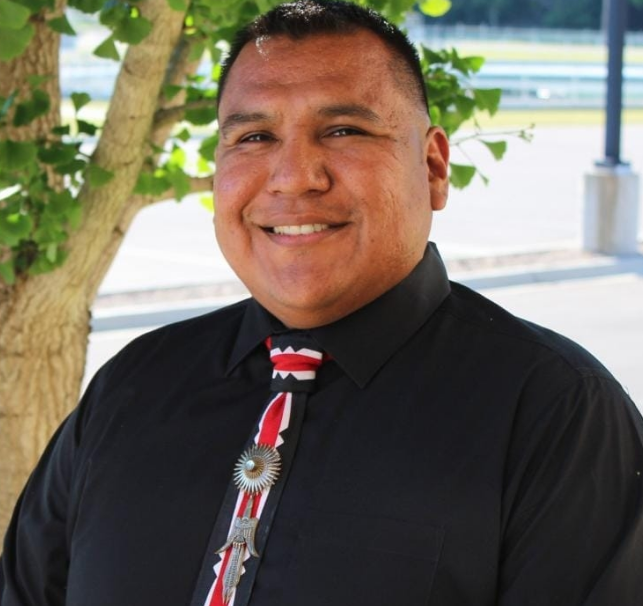ANADARKO, Okla. — As COVID-19 sweeps across Indian Country, tribes rally to protect their vulnerable members and ensure tribal government proceeds as normal. Newly elected Apache Business Committee member Dustin Cozad has been working on that since his first day in office in June, he said.

“The unpredictable nature of the virus has certainly affected tribal operations. There were times when we were forced to close departments due to COVID-19 exposure,” Cozad said. “Despite that we're still able to serve our people.”
A quick review of the Apache Tribe’s website reveals a litany of office closures and accommodations made in the wake of the pandemic’s spread. The disease temporarily shut down the Apache’s food distribution program in early August after an employee tested positive for COVID-19 (the program has since resumed). Even the general election was moved from April 4 to June 27.
Since then, the Apache have moved to protect both their employees and tribal members as much as possible, Cozad said.
“The Apache tribe is working to provide personal protective equipment to tribal members, as well as other necessities and sanitation supplies,” Cozad said. “The tribe is also setting policies in the workplace to help keep employees safe from contracting and spreading the virus. Renovations will be done on tribal buildings to lower the risk of spreading COVID-19.”
Meanwhile, the tribe is working to allocate funds awarded by the Coronavirus Aid, Relief, and Economic Security Act to those most in need, Cozad said. The CARES Act was a $2.2 trillion economic stimulus bill signed into law March 27. A portion of those funds went to Indian Country to help tribes in their response to COVID-19.
“The tribe is providing aid for all adult tribal members who have been affected by the pandemic. We also have Distance Learning assistance for all school-aged tribal kids ages 5 to 17 to purchase the technology needed to attend class from home,” Cozad said.
That assistance, according to a public release from the tribe, amounts to a $600 Visa card.
“We created the Direct Impact Assistance Program for tribal members who have tested positive for COVID-19 and need financial assistance to offset costs incurred by COVID-19. The Apache tribe continues to work diligently to find ways to provide relief for all tribal members during this difficult time,” the statement from the tribe said.
COVID-19 presents a rapidly changing, unprecedented challenge for both Native Americans and the wider country—a challenge that the Apache continually work to understand and overcome, Cozad said.
“The pandemic is something we are constantly adapting to,” he said.
More Stories Like This
Native News Weekly (August 25, 2024): D.C. BriefsUS Presidents in Their Own Words Concerning American Indians
DHS Secretary Noem Tells Tribes ICE Does Not Target Native Americans
Native News Online Marks 15 Years of Warrior Journalism
I’m a Minneapolis Postal Worker. This Is What I Saw.
Help us defend tribal sovereignty.
At Native News Online, our mission is rooted in telling the stories that strengthen sovereignty and uplift Indigenous voices — not just at year’s end, but every single day.
Because of your generosity last year, we were able to keep our reporters on the ground in tribal communities, at national gatherings and in the halls of Congress — covering the issues that matter most to Indian Country: sovereignty, culture, education, health and economic opportunity.
That support sustained us through a tough year in 2025. Now, as we look to the year ahead, we need your help right now to ensure warrior journalism remains strong — reporting that defends tribal sovereignty, amplifies Native truth, and holds power accountable.
 The stakes couldn't be higher. Your support keeps Native voices heard, Native stories told and Native sovereignty defended.
The stakes couldn't be higher. Your support keeps Native voices heard, Native stories told and Native sovereignty defended.
Stand with Warrior Journalism today.
Levi Rickert (Potawatomi), Editor & Publisher

